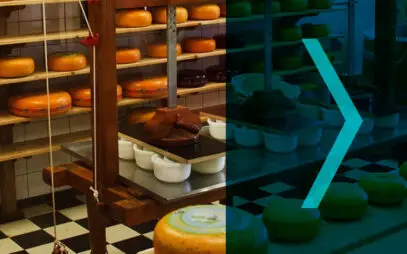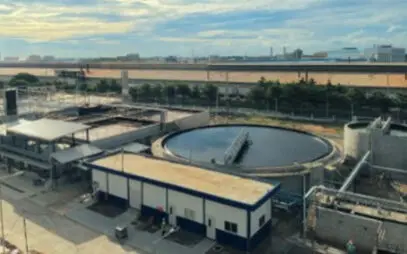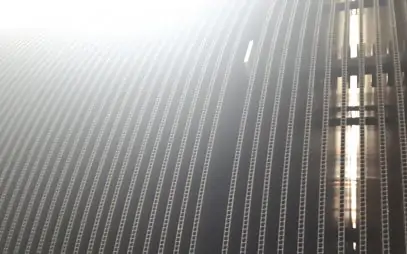Examples of areas: meat processing (delicatessens, dairies, slaughterhouses), dairy industries, confectionery sector, wine industries.
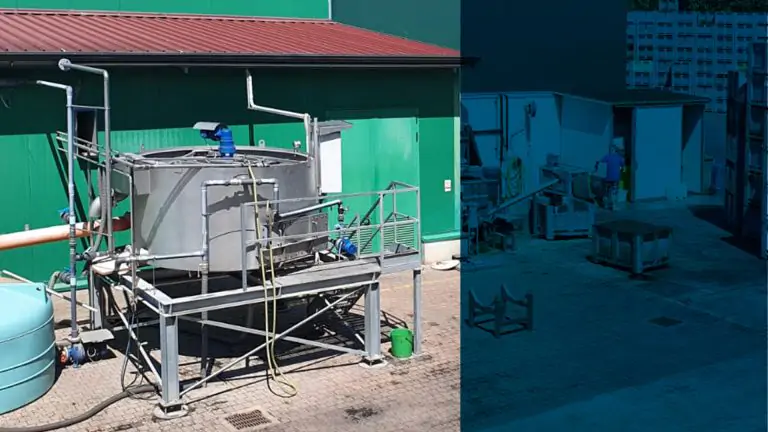
Water Treatment for Food Industry
Large amounts of total suspended solids, presence of grease, extreme load variability: these are characteristics that are often found when dealing with water treatment for the food industry. Flexible systems are therefore needed, possibly with an integration of biological and mechanical treatments. However, each project must start with a rigorous test with pilot units.
Main requirements: disposal of high amounts of suspended solids and grease, variable loads throughout the day and year, reduced footprint.
Water Treatment Systems for Food Industry
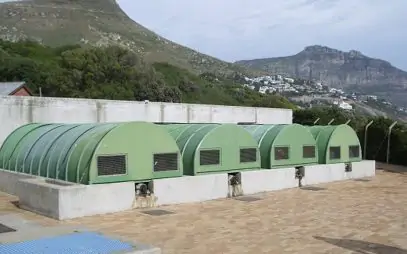
Biorulli® Biorotors B 200
The disc rollers, B 200 series, are the Biorulli® biodiscs biological oxidation solution: allowing high versatility in the face of widely varying effluent loads throughout the year. All this in conjunction with truly affordable acquisition costs.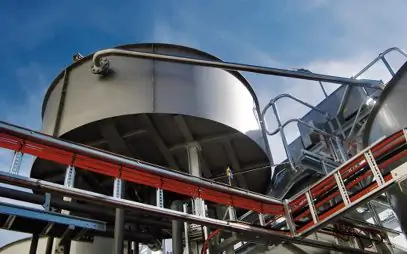
Mitadaf MD Dissolved Air Flotation Units
Mitadaf is the dissolved air flotation (DAF) system developed by MITA Water Technologies. Its outstanding efficiency in separating solids from liquid and thickening sludge comes from a unique approach that combines the use of microbubbles of air, produced by our Mitasat MS, with a uniform effluent hydrodynamic system.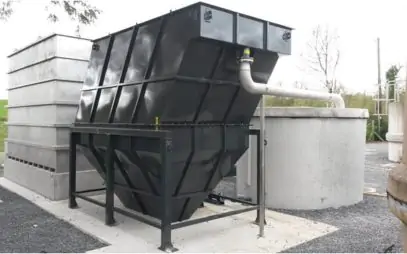
Flowpack Lamella Decanters Monoblock FM
Solid-liquid separation, sludge decanting, water clarification for further finishing operations-all these are represented by the FM Monoblock Series lamella decanters. Compact, efficient and space-saving solution. Simplicity of operation and very low product life cycle costs are pluses appreciated by customers in the civil and industrial fields.Needs of the food & beverage industry
We are talking about one of the sectors of the world economy with the largest supply chain, as well as one of the most heterogeneous as types of processes: this is why we cannot speak of a single type of water treatment for the food industry. Even more than in other industries, pollutants can vary widely, including:
- organic substances such as proteins, carbohydrates and fats,
- inorganic substances such as mineral salts, metals and chemical compounds,
- microorganisms such as bacteria and viruses.
As with other industries, treatment needs involve process wastewater, directly involved in production lines, and service wastewater, used for purposes other than the production process: for example, cooling water, condensate water, and rainwater. And as with all other sectors, compliance with regulations for spillage into water bodies is becoming increasingly important (with ever-lower levels of suspended solids in the various national regulations).
Not to mention that reuse of treated water is more cost-effective than spillage: not only in terms of minimizing the ecological footprint of water, but also for optimizing resource use within industrial processes.

Water quality of food & beverage industry
As in other cases of industrial wastewater treatment, we assume that each company and each production line has peculiar purification needs, and examples can only be given: tests with pilot units will then be essential to enucleate specific needs.
However, talking about water treatment for the food industry, we note a common feature of many plants: high load of suspended solids and, often, significant amounts of oils and fats (FOG). Think for example of delicatessens, slaughterhouses and dairies: all contexts generally rich in pollutants of an organic nature. The action of biological oxidation systems is often useful for the biodegradation of these substances: this is provided that pre-treatment (e.g., with flotation systems) is carried out to remove the coarser components and prevent biological treatment from being inhibited by the fats themselves.
Another frequently noted need is also the extreme variability, during the day and throughout the year, of the load to be disposed of: wineries and the aforementioned slaughterhouses are just two examples of contexts characterized by high seasonal variability. Speaking of service wastewater, the canteens of every company (food and non-food) produce a load of wastewater that is variable and concentrated in a few hours of the day. In all these cases, it is therefore useful to provide flexible water treatment systems capable of withstanding large increases in load.
Finally, as in all process industries, the presence of often limited space benefits modular and space-saving solutions.
Ask for InformationMITA water treatment technologies for the food industry
These are some of MITA Water Technologies’ most proven solutions for industrial wastewater treatment in food & beverage companies.
- Biorulli® Biological Oxidation Systems. Reduced footprint, modularity, flexible operation in case of sudden load increases: they are the ideal solution for “difficult” waters highly loaded with suspended solids and high BOD. They are a useful addition to mechanical pretreatment (upstream) and finishing solutions (downstream).
- Dissolved air floaters (DAF). Their mechanical action removes high amounts of fats and prevents them from inhibiting subsequent treatments such as biological ones.
- Oilpack oil separators and Flowpack decanters. Equipment that does not require continuous operation and is, therefore, an excellent pre-treatment solution (e.g., for yard runoff after weather events).
Some MITA projects
Biological Rotors for a Dairy Company in Chile
Easy operation and maintenance, effective removal of suspended solids: biodiscs installed in a Chilean dairy prove to be an effective solution for biological wastewater treatment in the food industry. The continued support provided by MITA Water Technologies was particularly appreciated, along with the achievement of the required parameters.
Read morePile Cloth Filters for a Brewery in Vietnam
Efficiency and sustainability in process water reuse: this has always been the focus of a Vietnamese plant of a multinational beverage company, which now optimizes the process with MITA pile cloth filters: reduced performance and power consumption.
Read more- Industrial Wastewater
- Suspended Solid Removal
- BOD and COD Removal
- Biorulli® Biodiscs
- Lamellar Pack Decanters
- Food & Beverage Industry
Biodiscs and Decanter for Italian Food Company
Integrated systems for different stages of water treatment: the key to a successful supply for a food company, through an environmentally sensitive engineering consulting firm in northern Italy.
Read moreWhat is your process goal?
Tools to help you choose
Industrial and civil wastewater treatment technologies
Our support throughout the product life cycle
A sustainable and efficient solution for every industry and need
Or You Can Choose
Our Newsletter
Sign up for the MITA Water Technologies newsletter: stay up-to-date on systems for municipal and industrial wastewater treatment and filtration.
